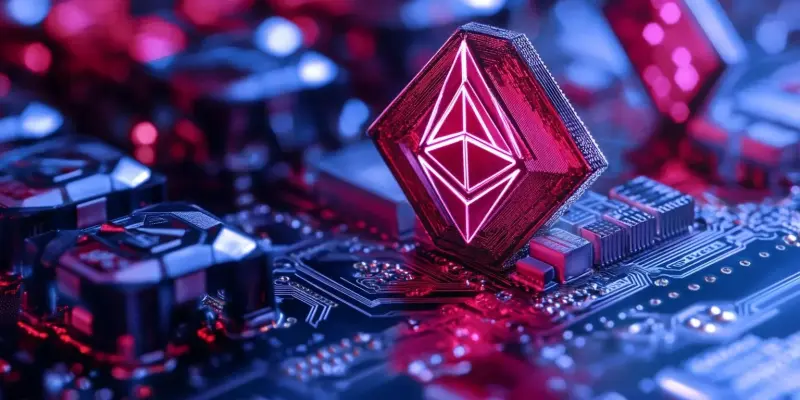In the rapidly evolving GameFi industry, strategic moves by market players often dictate the balance of power and future trends. Dogizen, a notable contender in the Telegram gaming sector, has recently made headlines with its decision to migrate from the TON blockchain to the Sui blockchain. This decision was accompanied by a notable presale, in which Dogizen raised a remarkable $3.85 million, causing the value of its DOGIZ token to rise by an impressive 21.43%. This shift highlights the growing investor confidence in Dogizen’s potential for long-term success, especially as the industry trends increasingly favor scalable and cost-effective blockchain solutions. As Dogizen prepares for its February 7 listing, all eyes are on its potential to challenge and possibly overtake Catizen, a current heavyweight in the GameFi sector.
Strategic Decision of Blockchain Migration
The decision by Dogizen to adopt the Sui blockchain marks an instrumental step aimed at ensuring low transaction costs, increased scalability, and a robust gaming-optimized infrastructure. This move is viewed as a strategic advantage over Catizen, which, despite a substantial user base, faces significant challenges tied to its reliance on the airdrop incentive model. As the name suggests, “airdrop-hopping” is a practice where users claim free tokens and subsequently sell them off immediately—an issue that has contributed to price instability for Catizen. Conversely, Dogizen aims to avert these pitfalls by employing an ICO framework that encourages the upfront acquisition of tokens, helping to foster long-term retention of value among users. This strategic shift is designed not only to improve user experience but also to address inefficiencies plaguing former GameFi projects.
Moreover, this blockchain migration aligns with broader industry trends favoring scalable, cost-effective solutions, putting Dogizen in a strong position for growth. Sui blockchain is recognized for its low transaction costs and high throughput, which makes it an ideal choice for gaming applications requiring quick, seamless interactions. This infrastructure is expected to provide an improved gaming experience vital for user retention. The commitment to a more stable platform may very well attract Catizen’s user base, cementing Dogizen’s presence in the market. The palpable excitement surrounding Dogizen’s adoption of Sui showcases its potential for capturing a larger market share as users seek more reliable and rewarding gaming experiences.
GameFi Market Dynamics
The GameFi industry, valued at over $1.1 billion and growing exponentially, stands prominently poised for further expansion with initiatives like Dogizen’s transition to Sui. This strategic maneuver reflects a thoughtful attempt to leverage advanced blockchain technology while avoiding the volatility pitfalls typically associated with airdrop-driven growth models. In contrast, Dogizen’s sustainable approach aligns with recent trends that favor organic community growth and strategic partnerships. This emphasis on community engagement has proven to be more effective for building a stable and sustainable user base. Analysts are keenly observing how Dogizen’s migration to Sui, combined with its robust tokenomics, may allow it to carve out a significant niche within the rapidly expanding GameFi sector on Telegram.
Catizen, despite its established presence and large user base, has faced challenges pertaining to its reward-based engagement model. In 2024, it launched a reward system through its App Center that sought to enhance user interaction by awarding allocation points for in-game tasks. Yet, the first significant airdrop event that distributed 10 million CATI tokens led to immediate sell-offs, contributing to unwelcome price fluctuations. This volatility highlighted the inefficacy of airdrop models in sustaining long-term value. In comparison, Dogizen’s ICO framework avoids such issues by ensuring tokens are bought instead of being freely distributed, thereby reducing sell-off risks. This structured approach holds promise for fostering a more durable and committed user base poised for the platform’s organic growth.
Future Prospects and Industry Implications
The GameFi industry, worth over $1.1 billion and growing rapidly, is set for further expansion with initiatives like Dogizen’s move to Sui. This strategic decision showcases an effort to harness advanced blockchain technology, steering clear of the volatility that comes with airdrop-driven growth models. Dogizen’s sustainable model aligns with the latest trends favoring organic community growth and strategic partnerships, which have proven more effective for building a stable and lasting user base. Analysts are closely watching Dogizen’s migration to Sui and its robust tokenomics, anticipating it to secure a significant position within the expanding GameFi sector on Telegram.
Catizen, despite its established presence and large user base, has struggled with its reward-based engagement model. In 2024, Catizen introduced a reward system through its App Center to boost user interaction by awarding allocation points for in-game tasks. However, a major airdrop event distributing 10 million CATI tokens led to immediate sell-offs, causing unwelcome price fluctuations. This highlighted the shortcomings of airdrop models in maintaining long-term value. In contrast, Dogizen’s ICO framework avoids these issues by selling tokens instead of distributing them freely, reducing sell-off risks and fostering a more committed user base.

